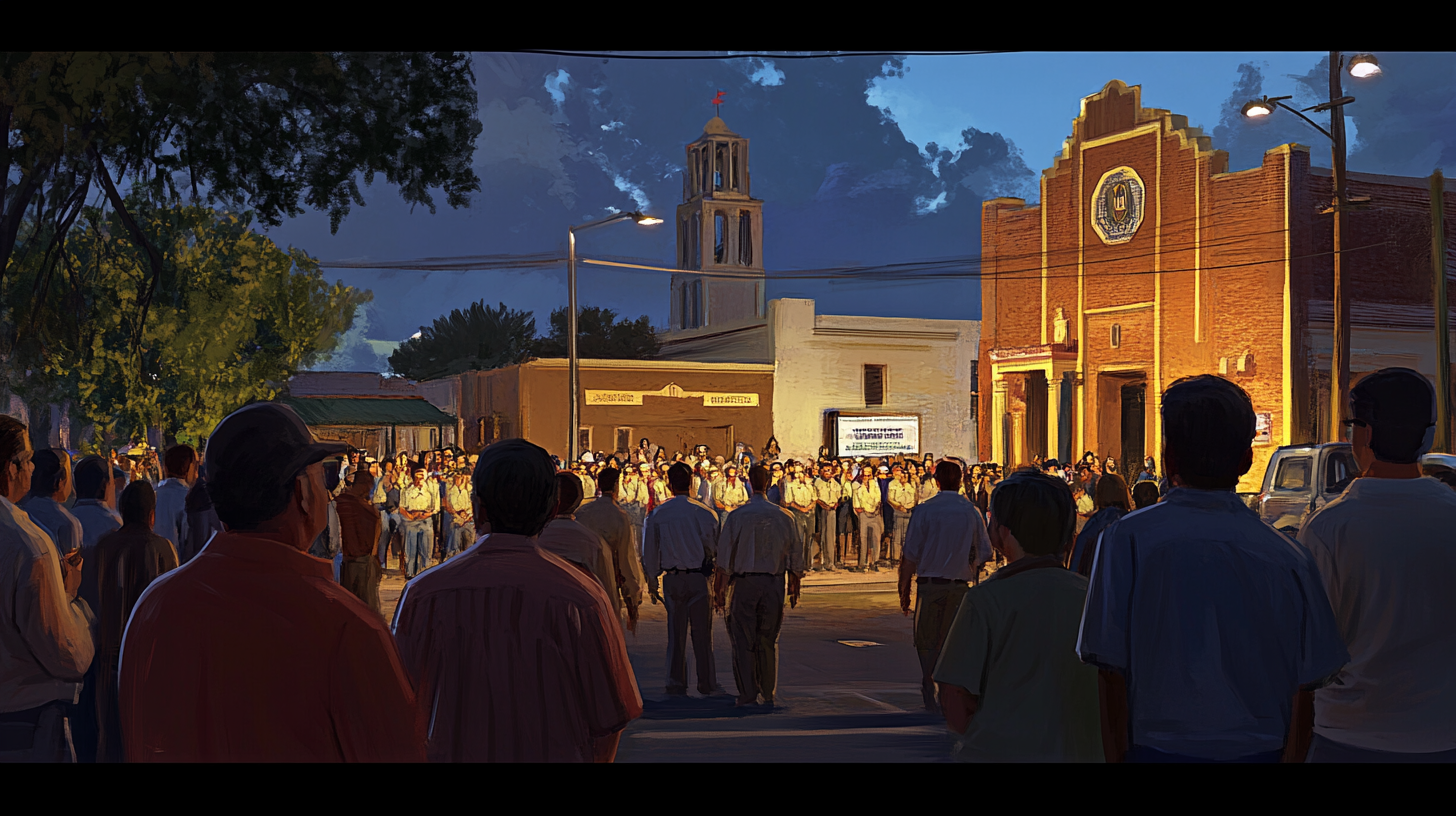Mission City Council Rejects Police Union Bargaining Petition
In an important decision that could redefine labor representation within the Mission Police Department, the Mission City Council voted unanimously to reject a petition put forth by the Mission Police Association Local 293 (TMPA). The petition sought to establish TMPA as the exclusive bargaining representative for city police officers. The council’s rejection centered on TMPA’s purported lack of formal legal status, a decision met with mixed reactions and complex legal implications for Valley residents.
A Closer Look at the Decision
At the heart of the council’s decision was the validity of TMPA’s status as a recognized entity. Despite TMPA acquiring a petition with 111 active signatures—representing slightly over two-thirds of the police department—questions arose about TMPA’s legal standing. A critical aspect of the controversy was raised by the competing union, the City of Mission Professional Law Enforcement Association (MPLEA), which claimed that TMPA failed to register officially with the Texas Secretary of State’s office.
Councilman Richard Flores explained the reasoning behind the unanimous rejection: “It is crucial that any organization representing our officers be in full legal compliance. As it stands, TMPA’s lack of registration poses a barrier that we cannot overlook.”
Implications for the Rio Grande Valley
This decision holds significant implications within the local community, which traditionally places high value on law enforcement and public safety. The outcome may affect not only the internal dynamics of the police department but also broader community interest regarding representation and fair labor practices in critical Valley institutions.
For some in the community, such as former law enforcement officer and local business owner Clara Mendoza, transparency and adherence to legal standards are imperative. “Ensuring all processes are above board guarantees fairness, not just for officers, but for the citizens they serve daily,” Mendoza said.
Tensions Amidst Opposing Unions
The hearing was rife with tension as opposing unions, TMPA and MPLEA, made their cases before city officials. TMPA’s representation rested on the argument that its petition reflected a majority’s desire for exclusive bargaining rights—a premise that could extend their influence within departmental decisions akin to the thriving local fire fighters’ union.
Conversely, MPLEA’s president, Alex Leal, urged the council not only to reject the petition but to view TMPA as lacking legitimacy. “TMPA has operated without a legal backbone for years, and allowing its representation could undermine the integrity of our local governance,” Leal contended.
Amid these debates, attorney David Willis, speaking on behalf of TMPA, deflated claims made by the MPLEA. “These accusations are categorically false and seem to serve further division rather than resolution,” Willis argued. He emphasized that the petition clearly indicated the majority’s interest within the department.
Context of Ongoing Community Disputes
The decision connects to a timeline of modus operandi disputes within Valley law enforcement unions. Historical precedents show that similar contentions have culminated in legal battles, emphasizing the overlapping interests of union representation, city policy, and operational accountability.
Tensions within these frameworks have previously resulted in calls for reformed union policies and heightened engagement between law enforcement and City of Mission leaders. As the legal wrangling continues, it is critical to monitor how this shapes future municipal relationships and policy enactments in South Texas.
What Lies Ahead: Prospects and Concerns
The aftermath of this decision encompasses potential repercussions through legal channels. Both TMPA and MPLEA appear positioned for protracted opposition, possibly involving court challenges that could redefine collective bargaining constructs within the local police force.
Looking forward, how this unfolds may affect trade-offs between employees’ advocacy rights and institutional compliance, elements that reflect changed landscapes on local governance and community trust.
Eric Delgado, a legal analyst and commentator on South Texas labor relations, sees potential opportunities and constraints. “While this may empower officers to strive for reform, it also warns of cautionary tales when institutional policies lack cohesiveness with state law,” Delgado noted.
Community Engagement and Resources
Amidst these developments, residents of the Rio Grande Valley can engage with their elected officials and share feedback as similar issues evolve. Public forums are slated to take place over the coming months, providing platforms for dialogue and understanding regarding local law enforcement unionization impacts.
For further inquiries or to register concerns, locals are encouraged to reach out to the City of Mission administration directly via their public relations channels.
In closing, while the denial of TMPA’s petition by the Mission City Council appears definitive, its implications ripple through legal, organizational, and community spheres. As facts continue to unravel and developments arise, RGV news outlets remain committed to delivering informed, unbiased coverage that upholds community interests and fortifies public discourse integrity.







